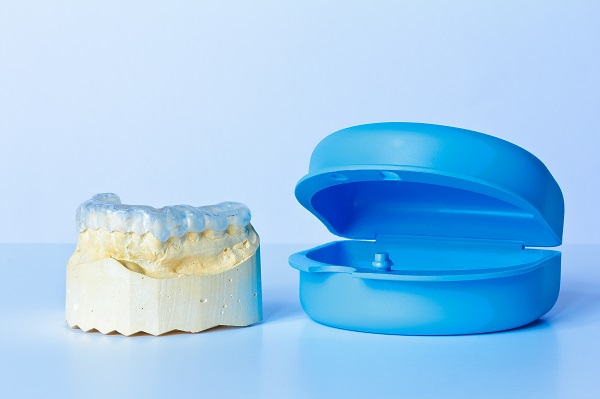How Invisalign® Can Help With Gaps in Teeth

If you have gaps in your teeth, you might be wondering if Invisalign® can help. The answer is that yes, it can usually help in most cases. There are many reasons to fix gaps in your teeth, including getting better oral health. But before getting Invisalign, you will most likely want to take a closer look. Keep reading to learn more about gapped teeth.
Understanding gaps in teeth
There is a formal name for gaps in the teeth, although it is not often used. The medical name for it is diastema. That just means there is a gap between two teeth. This is a normal condition for children, but it is not as common in adults.
Many times, the gaps are seen in the front teeth or between the top incisors. But the back teeth can also have gaps. First, the dentist will take a look at what is causing the gaps in the teeth. This can include issues such as:
- Too much gum tissue growing
- External causes such as thumb-sucking
- Small teeth in the jaw
Sometimes, teeth with gaps in them will shift and correct themselves. But this does not always happen. Having gaps can cause many issues, like food getting trapped between the gaps. When the area cannot be cleaned enough, the gums might become tender.
This can also result in gum disease or even tooth decay. When the dentist discovers this issue early, a treatment that is not invasive will be recommended. Before getting Invisalign, the patient might need to have the excess gum tissue removed. Then the patient can proceed to get an Invisalign treatment.
How Invisalign® fixes gaps
Many adults and teens have made the choice to use Invisalign to correct alignment issues with gapped teeth. A dentist can help the patient decide if this is the right method of treatment. This method does not work in the same manner that traditional braces do. Metal braces are attached to the teeth with dental cement, and wires are used to move the teeth around.
But with Invisalign, the patient will receive a set of customized clear aligners that will fit the teeth well. These are invisible when worn and will stay on for at least 22 hours each day. A computer program is used to create each set of trays. Then the patient will get a new set every two weeks. It will usually take around a year to finish up the treatment.
Visit a general dentist to get Invisalign® today
One of the reasons why so many patients benefit from Invisalign is that it lets them do everything normally. Since the trays are removed during meals or snacks, there are no restrictions on the patient’s diet. By cleaning your trays in the morning and evening, you can keep them clear and discreet. Visiting your dentist will allow you to have a consultation to see if this is the right treatment for you.
Request an appointment here: https://www.gablesexceptionaldentistry.com or call Gables Exceptional Dentistry at (305) 203-4132 for an appointment in our Coral Gables office.
Check out what others are saying about our services on Yelp: Read our Yelp reviews.
Related Posts
It can be scary to endure a cracked tooth, especially when it results from dental trauma. This review explains what to do in the event of a cracked tooth. It is important to take a deep breath and handle the immediate aftermath one step at a time.You can help ensure a cracked tooth (or a…
Are you considering Invisalign®? Read on to learn more about this teeth-straightening option. The path to a beautiful smile, complete with straight teeth, can be life-changing. Using braces to straighten teeth has been the standard practice for decades. However, new orthodontic treatments have emerged as a result of technological advances. One such innovation is Invisalign,…
Eating with Invisalign ® aligners will be slightly different from your usual routine, but it is entirely manageable with minor adjustments. We often receive questions about eating with Invisalign, so we have answered the most common ones in this review to help you navigate this aspect of your orthodontic treatment. Understanding what patients can and…
Are you looking for CPAP alternatives to treat your sleep apnea? Obstructive sleep apnea is a common condition that impacts millions of individuals all across the globe. Due to this condition, the patient’s airway closes while they are asleep. This can lead to symptoms like difficulty staying asleep throughout the night, snoring, morning headaches, and…
